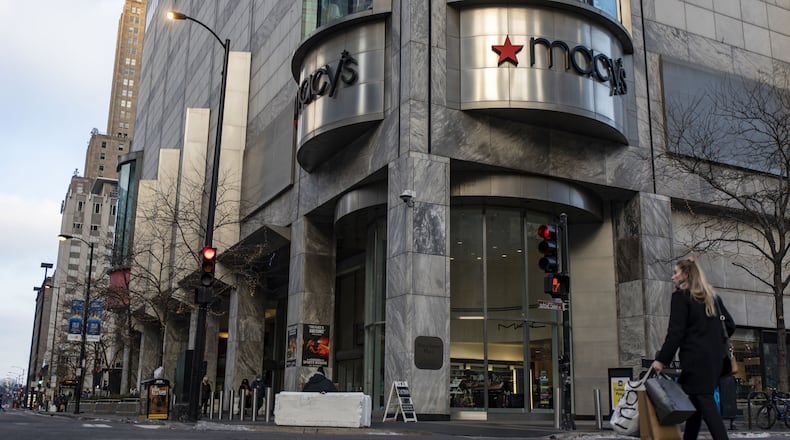Macy’s, the iconic department store chain, on Tuesday announced a dramatic reshaping that means closing about 150 Macy’s stores nationwide over the next few years while pumping up its Bloomingdales and Bluemercury brands.
The company has struggled against changes in consumer behavior, with Macy’s middle-class appeal stranded between in-person buying that has been veering down-market toward low-price, “big box” stores on one hand and up-market toward luxury and specialty shops.
Meanwhile, an increasing share of spending continues to move online.
Macy’s said it will close “underperforming” locations, with 50 stores to close through the end of this year and about 100 more over the next three years. The company did not immediately respond to questions from The Atlanta Journal-Constitution about effects of this restructuring on Georgia locations.
Macy’s has about a dozen locations in metro Atlanta. The company has a Bluemercury store on West Paces Ferry in Atlanta and two others in Alpharetta. There is one metro area Bloomingdales location, a store at Lenox Square Mall in Atlanta.
Macy’s strategy for adapting is “a bold new chapter” and “a call to action,” said Macy’s Chief Executive Officer Tony Spring in a statement Tuesday.
While closing Macy’s stores, over the next three years, the company plans to open about 15 Bloomingdales stores and at least 30 new Bluemercury locations, he said.
“It challenges the status quo to create a more modern Macy’s,” he said. “We are making the necessary moves to reinvigorate relationships with our customers through improved shopping experiences, relevant assortments and compelling value.”
Bloomingdales typically sells more upscale merchandise than Macy’s stores. Bluemercury is a beauty retailer, selling cosmetics, skincare, wellness and spa products.
The plan announced Tuesday is intended to keep the company steadily profitable, Spring said
The company has been fighting off an acquisition attempt by Arkhouse Management and Brigade Capital Management, recently rejecting a $5.8 billion takeover bid by the two.
Macy’s, which traces its name and lineage back to a dry goods store opened in New York City by Rowland H. Macy in 1858, is the nation’s largest operator of department stores.
Tuesday’s announcement will be the second set of significant closures in the past few years. In January, Macy’s announced it was laying off about 3.5% of its workforce, or roughly 2,350 employees.
Company stock at mid-day was selling for $20.16 a share, up 4.4% since the morning opening. That is not far from the 52-week high of $22.70 a share, reached last March. But it is less than one-third the all-time high of $72.31 a share reached in 2015.
“We believe shares are fairly valued,” said Zachary Warring, an analyst for CFRA Research.
Sales are on average 4% lower now than a year ago in Macy’s stores, while they have dipped 1.6% at Bloomingdales and risen 2.3% at Bluemercury, he said.
Warring said he thinks Macy’s shares will settle around $18 during the next 12 months
About the Author
Keep Reading
The Latest
Featured




